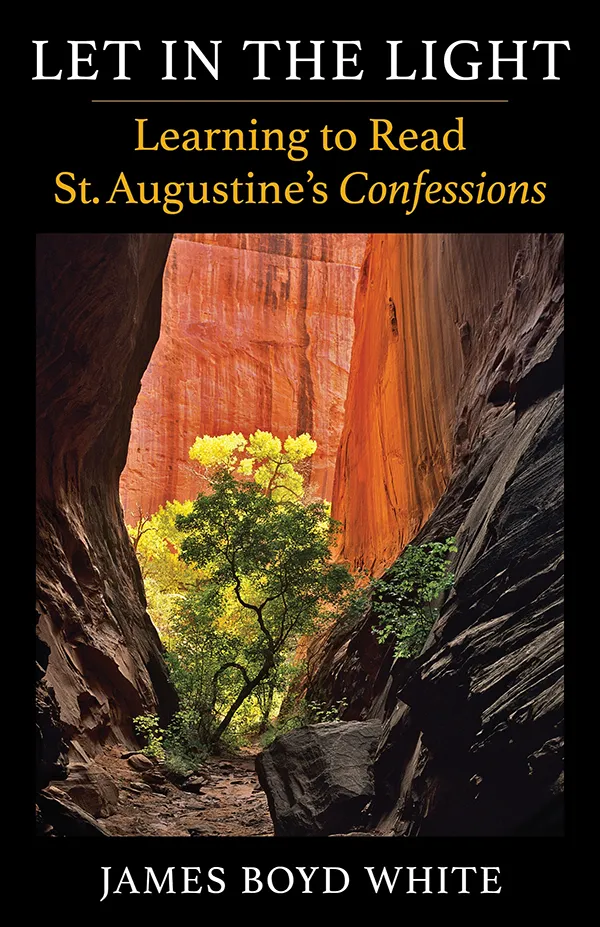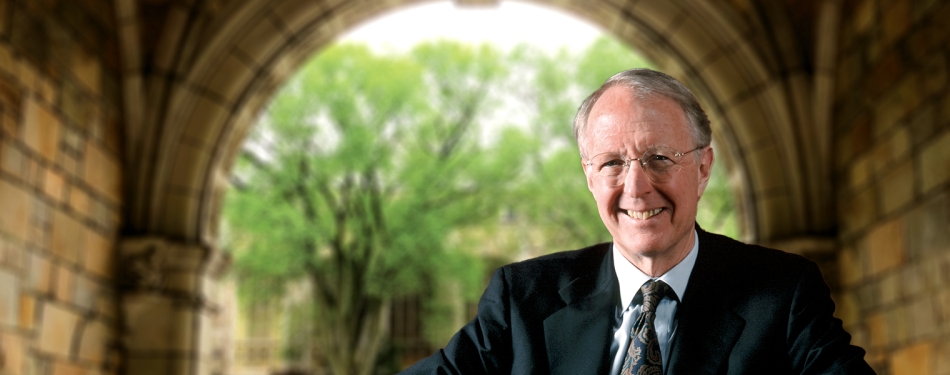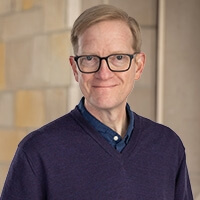James Boyd White is the L. Hart Wright Collegiate Professor Emeritus of Law and a professor of English emeritus. A member of the American Law Institute and the American Academy of Arts and Sciences, he has received fellowships from the Guggenheim Foundation and the National Endowment for the Humanities. Among the many books that he has published is Keep Law Alive (Carolina Academic Press, 2019), which focuses on how we should respond to the fact that law and democracy are under threat in our world. His newest book, Let in the Light: Learning to Read St. Augustine’s Confessions (Columbia University Press, 2022), shares his experience reading Augustine’s Confessions in Latin, even for those who have never studied the language.
Below, he answers five questions about why he wrote the book and why it matters.

1. In a nutshell, what is the central theme or argument of Let in the Light?
There are two themes, really. The first is that the meaning of Augustine’s Confessions is to be found not in the propositions he utters or even the story he tells, but in the experience the text offers its reader as it is read, slowly and with care. This is a place of mutual engagement and surprise, a place where you can hear Augustine’s voice and come to know his nature. The second theme is that this experience is fully available only in the original Latin text. It cannot be reproduced in English or any other language. Of course, I don’t confine my readership to those who already know Latin, but I do make the Latin language one of my subjects and try to teach those who have no Latin enough of the language to enable them to see in a fuller way what is happening in the wonderful text Augustine wrote.
2. What sparked your interest in classic texts like Augustine’s Confessions and in studying Latin?
My high school and college education opened my eyes to the value of the great books of Western culture in general and, in particular, to the value of learning Greek and Latin. I learned early that what is said or done in one language cannot simply be translated into another without distortion.
When I first tried to read the Confessions—widely thought to be one of the greatest works of all time—in English, I was deeply disappointed. The English into which it was translated seemed to me dead and conclusory. But, years later, I read the first paragraph in my high school Latin and found it completely different. I was, in the modern idiom, blown away. All the impressions I had of this text were exploded. It was full of life and immediacy and urgency. I felt that I was directly hearing Augustine’s actual voice, not listening to a voice muffled and distorted by being forced to speak English.
3. What is the relevance of Augustine’s Confessions to the modern world?
This is, of course, a question each person has to address for themselves. For me, the relevance is deep. I think our nation is in great danger of losing the culture and authority of the law, rooted as it is in constitutional democracy. In my book Keep Law Alive, I try to explain, through examples, how our law is an enormous gift and why it is so important to keep it alive. But I also ask, “What if we fail? How can we maintain our psychic integrity if it dies?” Here I thought of Augustine, living in a much worse world than ours—a world that was, in fact, collapsing around him—and suggested that in the Confessions he may be showing us how to survive the worst. Let in the Light elaborates that position in depth and in detail.
4. What was the most surprising thing you discovered as you dug into this project?
That Augustine, the smartest man in any room, ranks compassion and kindness and fidelity as the highest virtues.
5. How does this book tie in with your previous practice and scholarship?
As you can see, I am fascinated by language and the relation between languages. That has been with me from the beginning. In practicing law, I quickly came to see that we must work in two languages, the languages of the law and of ordinary English. Somehow, we had to speak both and speak them well—we had to integrate them. This was itself interesting and defined legal justice in a new way. This perception led to my course book, The Legal Imagination, a writing course for future lawyers, asking them to look constantly at the ways they write and speak and, in doing so, to form relations with others. My goal was to help them bring the whole process into their understanding and control. A few years later, I wrote Justice as Translation, using the ethical and practical and literary activity of translation as a way of helping us define as a species of translation the intellectual and ethical excellence we see in the best writing and speaking. My book Living Speech is an effort to define the kind of speech that should be protected by the First Amendment. Different as Augustine is from the legal world of practice and teaching, in my life they belong together.







